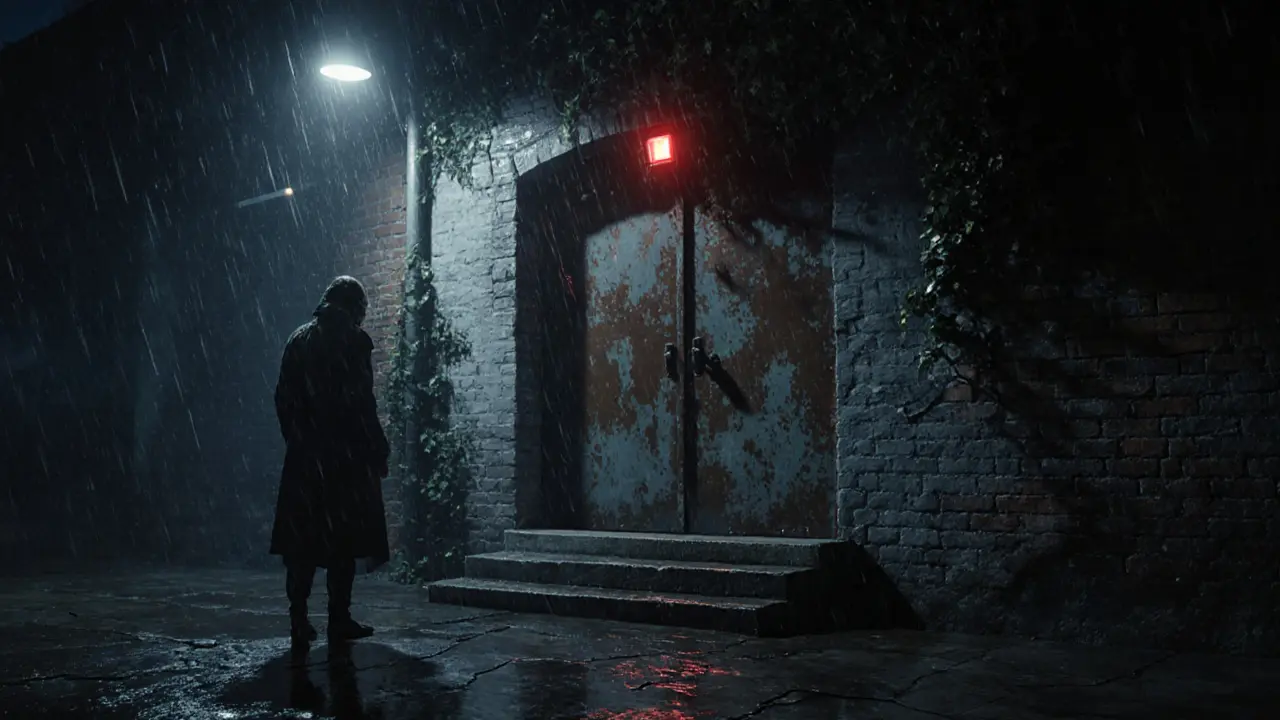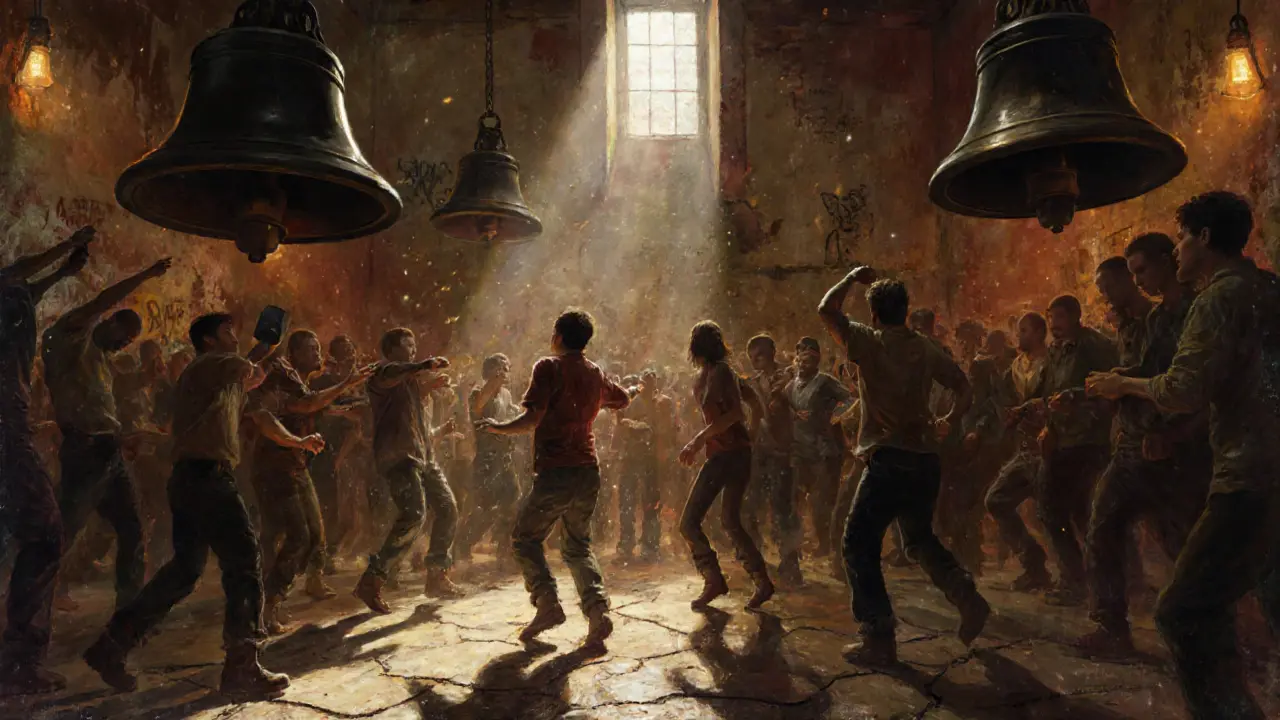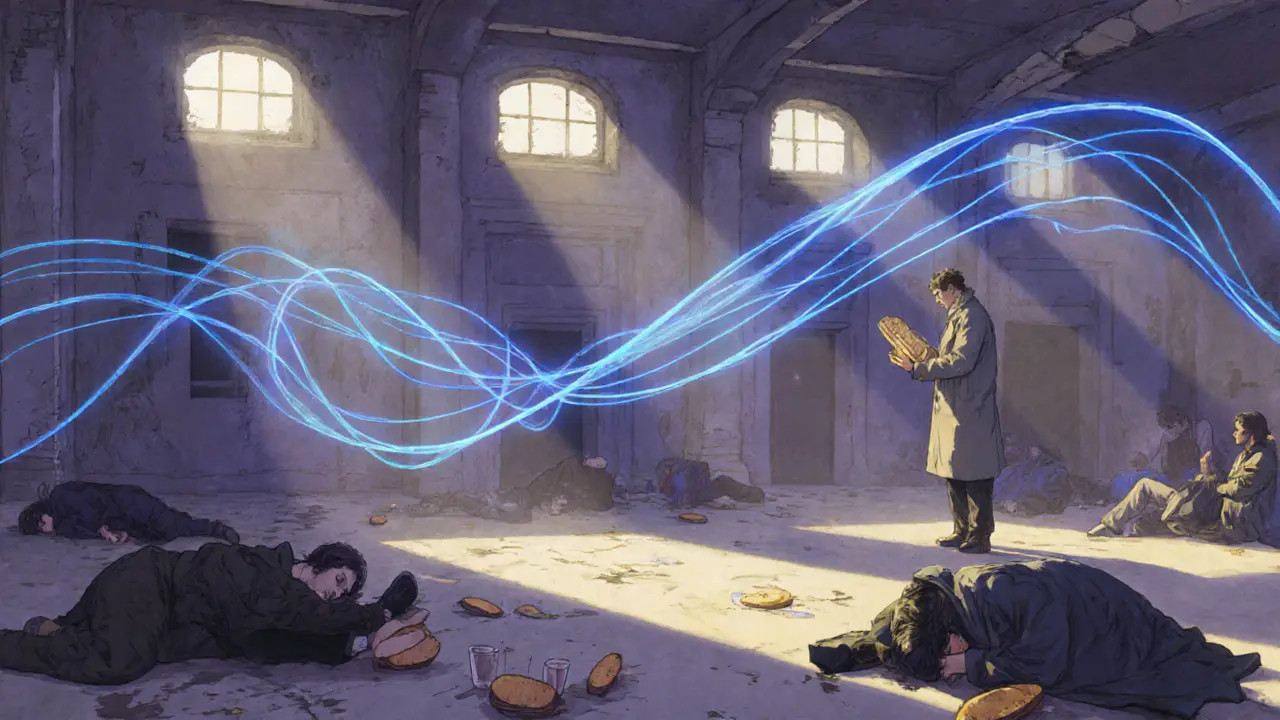Magazzini Generali - Where to Dance Till Dawn in Milan

There’s a place in Milan where the bass doesn’t stop until the sun cracks the sky. No velvet ropes, no bouncers checking your designer sneakers, no VIP lists that cost more than your rent. Just a converted 19th-century warehouse, cracked concrete floors, and a crowd that doesn’t care who you are - they only care if you’re moving. This is Magazzini Generali.
What Makes Magazzini Generali Different
Most clubs in Milan feel like they’re trying too hard. Neon signs, bottle service, DJs playing the same three remixes on loop. Magazzini Generali doesn’t care about trends. It cares about sound. The space used to store textiles, then later became a warehouse for industrial parts. Now, it’s one of the last real underground spots left in the city. No one owns it. No big corporation runs it. It’s run by a loose collective of artists, sound engineers, and people who just hate the idea of paying €50 to stand in a room with five other people taking selfies.
The sound system? Custom-built. Not some branded setup from a catalog. A local engineer spent two years wiring it, tuning it, testing it with live bands before letting anyone else in. The speakers hang from the ceiling like old church bells. The subwoofers are buried under the floor. You don’t hear the music - you feel it in your ribs. People come from Berlin, London, even Tokyo just to experience it.
When to Go - And When Not To
Magazzini Generali doesn’t open on Fridays. That’s when the tourist clubs fill up. This place opens on Saturdays at 11 PM and doesn’t turn the lights on until 7 AM. Sometimes later. You won’t find the opening time posted anywhere. No website. No Instagram page. Just word of mouth. If you’re asking for a schedule, you’re already in the wrong place.
The best nights are when it’s raining. Not because it’s romantic - because the crowd thins out. The people who show up on rainy nights are the ones who really want to be there. They’ve walked through the back alleys of Lambrate, dodged the cops near Porta Genova, and slipped through the side door marked only by a flickering red bulb. That’s when the music shifts. No pop remixes. No commercial house. Just deep techno, raw industrial beats, or sometimes, live experimental noise from a guy who built his instruments from scrap metal.
Don’t go on Sunday. The place shuts down. The staff cleans. The lights get turned off. The doors are locked. It’s not a club that operates like a business. It operates like a ritual.
What to Wear - And What Not To
You won’t get turned away for wearing sneakers. Or ripped jeans. Or a hoodie. You will get turned away if you’re wearing a suit. Or a tie. Or anything that looks like you’re trying to impress someone. This isn’t a place for status. It’s a place for surrender.
People show up in work boots, raincoats, even pajamas - if they were coming straight from a night shift. The only rule? No perfume. No cologne. The smell of sweat, damp wool, and old concrete is part of the atmosphere. Fragrance messes with the vibe. One guy got kicked out last year for spraying himself with Creed. The DJ stopped the set and said, “We don’t do perfume here. We do sweat.”

The Music - No Playlists, No Predictability
The DJs don’t use Serato. They don’t use laptops. Most play vinyl. Some use modified cassette decks. The lineup changes every week. You might get a former member of a Milan punk band from the ’90s. Or a 19-year-old who samples field recordings from the city’s abandoned metro tunnels. Or a woman from Bologna who mixes ambient noise with field recordings of train brakes.
Last month, a DJ played nothing but recordings of Milan’s water pipes - the gurgles, the rumbles, the hisses - for two hours straight. People danced. Some cried. No one left. That’s the kind of place this is.
You won’t hear Ed Sheeran. You won’t hear Calvin Harris. You won’t hear anything that’s been on Spotify’s Top 100 this year. The music here isn’t meant to be shared. It’s meant to be felt.
How to Find It
There’s no Google Maps pin. No official address. The entrance is behind a shuttered hardware store on Via Padova, near the old textile market. Look for a metal door with no sign. A small red light above it blinks every 12 seconds. That’s your cue. Knock three times. Wait. Someone will open it just enough to look at you. If you smile, they’ll let you in. If you look nervous, they’ll close it. No questions asked.
Some people get lost. They end up at the tourist clubs near Brera. Others show up at the wrong time. If you’re standing outside at 8 PM, you’re not ready. Come back at 11. Or 12. Or 1 AM. The door opens when it’s ready.

What Happens After Dawn
When the sun comes up, the lights flicker on. People are still dancing. Some are asleep on the floor. Others are drinking tea from thermoses someone brought in. A guy in a raincoat is handing out warm bread. No one knows who he is. No one asks.
There’s no last call. No closing time. Just the slow fade of the music as the sky turns from black to gray. And then - silence. The doors open. People walk out into the morning. Some head home. Others sit on the curb, smoking, watching the city wake up. No one talks about what happened inside. You don’t need to. You already know.
Magazzini Generali isn’t a club. It’s a reset button. For people who’ve spent too long pretending. Too long chasing trends. Too long trying to be seen. Here, you disappear. And in that silence between beats, you remember who you are.
Why It Still Exists
Developers have tried to buy it. City officials have threatened to shut it down. Rent has doubled three times in five years. Yet it’s still here. Not because it’s profitable. But because it’s necessary. In a city obsessed with image, Magazzini Generali refuses to be photographed. In a world that sells experiences, it gives you nothing but sound - and the space to lose yourself in it.
It’s not about the music. It’s about the silence after it ends. The way your body remembers the rhythm even when your mind has forgotten why you came. That’s why people keep coming back. Not for the drinks. Not for the crowd. But for the feeling that, for a few hours, the world outside doesn’t exist.
Is Magazzini Generali open every weekend?
No. It only opens on Saturdays, and even then, only if the collective decides to. There’s no schedule. No website. No announcements. You have to be in the right place at the right time - and know how to ask. If you’re asking online, you’re probably not going to find it. Word of mouth is the only way in.
How much does it cost to get in?
There’s no fixed price. Usually between €5 and €10, paid in cash at the door. Sometimes it’s free if the night is slow. Sometimes it’s more if there’s a special guest. But you’ll never be charged for a drink. The money goes straight to the sound system, the artists, and keeping the lights on. No one profits from it. That’s the point.
Can I take photos or videos inside?
No. Phones are not allowed inside. There’s a bin near the entrance where you leave your phone, camera, or smartwatch. If you’re caught sneaking one in, you’re asked to leave - no warning. The rule isn’t about privacy. It’s about presence. If you’re looking through a screen, you’re not dancing. You’re not feeling it. And that’s not why you’re here.
Is it safe to go alone?
Yes. It’s one of the safest places in Milan at night. The crowd is self-policing. No one wants trouble. No one wants outsiders. Everyone there has chosen to be there - and they respect that choice. You won’t find aggression, harassment, or pushy behavior. It’s quiet, intense, and deeply respectful. Go alone if you want to. You’ll fit in.
What’s the best way to get there?
Take the metro to Porta Genova or Lambrate. Walk south toward Via Padova. Look for the old hardware store with the shuttered front. The entrance is behind it - a metal door with a blinking red light. Don’t follow Google Maps. It won’t lead you there. Ask someone who’s been. Or just wander the backstreets after midnight. You’ll hear it before you see it.
If you’re looking for a night out that doesn’t end when the clock hits 2 AM, Magazzini Generali is still there. Waiting. Not for you to find it. But for you to stop looking - and just let the music take over.

Triston Hargrave
November 8, 2025 AT 18:55This place is the last bastion of authenticity in a world that’s been sold to the highest bidder. 🤘 No phones, no branding, no corporate sponsors-just raw sound and human presence. It’s not a club, it’s a fucking meditation. If you need a hashtag to validate your night, you don’t belong there. And honestly? Good.
Jodie Rae Plaut
November 9, 2025 AT 15:37For anyone new to underground scenes: Magazzini isn’t about exclusivity-it’s about intentionality. The no-phones rule? It’s not about control, it’s about embodiment. When you’re not scrolling, you’re feeling the bass in your sternum, the damp concrete under your shoes, the shared silence after the track ends. That’s not FOMO-that’s presence. And yeah, it’s rare. But it’s real. Go with an open chest, not an open camera roll.
Colin Napier
November 11, 2025 AT 11:33Let’s be clear: the fact that you have to knock three times and smile to get in is not ‘quirky’-it’s a filter. A necessary one. The place survives because it refuses to commodify experience. No Instagrammable walls, no merch stands, no overpriced gin tonics. The DJ who played water pipes for two hours? That’s not avant-garde performance art-that’s sonic honesty. And anyone who brings cologne? They’re not just out of place-they’re an affront to the entire ethos. Also: the ‘no suits’ rule is non-negotiable. If you’re wearing a tie, you’re already lying to yourself.
Patsy Ferreira
November 11, 2025 AT 14:46Okay but like… why is everyone acting like this is some sacred temple? I mean yeah it’s cool that it’s not a corporate club but come on it’s just a warehouse with loud music. And the ‘no perfume’ rule? That’s just weird. Who even wears perfume to a club anymore? Also the part about crying during water pipe sounds? That’s not deep that’s just overthinking. And who says ‘you don’t need to talk about it you already know’? That’s such a cringe pseudo-philosophical copout. Also the author says ‘no one profits’ but then mentions ‘money goes to the sound system’-wait so someone’s getting paid? That’s not ‘no profit’ that’s just bad accounting. And why does everyone assume it’s safe? What if someone’s a creep? No one’s checking IDs? That’s irresponsible. Also-why no photos? Are they afraid someone might prove it exists? Seems kinda shady. And the ‘walk through alleys’ thing? Sounds like a trap. I’m not going.
William Terry
November 11, 2025 AT 20:22